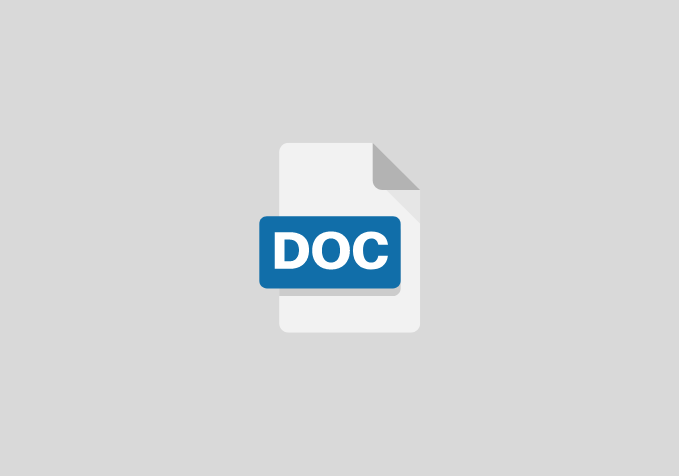A Research Proposal on an Evaluation of Privatization Policy on Socio-economic Development in Nigeria: a Study of NNPC Ltd
CHAPTER ONE
Objective of the Study
The specific objectives of this study include:
- To evaluate the impact of the privatization of NNPC Ltd on Nigeria’s socio-economic development, particularly in terms of economic efficiency, transparency, and accountability.
- To examine the socio-economic consequences of NNPC Ltd’s privatization on employment, income distribution, and public welfare.
- To assess the alignment of the privatization policy with Nigeria’s broader development objectives, including sustainable growth and poverty reduction.
CHAPTER TWO
Literature Review
Privatization
Privatization, in its ordinary sense, involves transferring ownership, control, and management of state-owned enterprises (SOEs) from public to private hands. This shift aims to improve efficiency, encourage competition, and reduce the financial burden on governmentsrding to Megginson et al. (1996), privatization entails the sale or transfer of government-controlled businesses to private investors, primarily to enhance service delivery, boost economic growth, and increase efficiency. Similarly, Asouzu (2023) expands on this, noting that privatization may take varied forms, such as commercialization, where entities are restructured to operate like private businesses without completely transferring ownership.
Perceived benefits, the concept of privatization has not been without criticism. Roland (2018) argues that privatization risks creating monopolies, increasing inequality, and reducing public oversight over essential services. Moreover, in developing countries, weak regulatory environments can exacerbate corruption and inefficiency, counteracting the anticipated benefits.
Privatisation is relevant to this study, particularly as it relates to the Nigerian National Petroleum Corporation (NNPC) Ltd. The potential benefits, such as efficiency and economic growth, align with the study’s objectives. However, challenges tied to inadequate regulatory frameworks and socio-economic disparities present significant limitations in achieving these outcomes in Nigeria.
CHAPTER THREE
Methodology
Research Design
Research design refers to the plan or blueprint for conducting a study. It encompasses the procedures for data collection, analysis, and interpretation, and it plays a crucial role in ensuring the study’s reliability and validity (Saunders, Lewis, & Thornhill, 2019). For this study, a quantitative survey research design was adopted. This design is often used when the researcher seeks to measure variables and examine relationships between them using statistical methods (Bell, 2022).
A quantitative approach was chosen for several reasons. First, it allows for the collection of numerical data that can be analyzed to identify trends, patterns, and relationships. Second, it offers the possibility of generalizing findings to a larger population, which is crucial given the scope of this study. Finally, quantitative methods, particularly surveys, are highly efficient in gathering data from large numbers of participants, which is essential for understanding the public’s perception of privatization and its economic impacts (Frankfort-Nachmias, Nachmias, & DeWaard, 2021). In this study, the quantitative survey design facilitated the examination of respondents’ opinions, beliefs, and experiences regarding NNPC’s privatization and its implications for Nigeria’s economy.
References
- Aboyade, O. (2020). Nigerian public enterprises as an organizational dilemma. Public Enterprises in Nigeria: Proceedings of the 1973 Annual Conference of the Nigerian Economic Society.
- Asouzu, N. V. (2023). The impact of privatization and commercialization of public enterprises on the economic growth of Nigeria. Department of Economics, Faculty of Management and Social Sciences, Caritas University, Amorji–Nike Emene, Enugu, Enugu State.
- Babalola, J. A., & Adegbite, M. A. (2021). The performance of Nigeria’s capital market since deregulation in 1986. CBN Economy and Finance Review, 39(1)
- Beiske, B. (2017). Research methods: Uses and limitations of questionnaires, interviews, and case studies. GRIN Verlag.
- Bell, E. (2022). Business research methods. Oxford University Press.
- Bell, E., Bryman, A., & Harley, B. (2019). Business research methods (5th ed.). Oxford University Press.
- Bernard, H. R., & Ryan, G. W. (2019). Analyzing qualitative data: Systematic approaches. SAGE Publications.
- Charan, J., & Biswas, T. (2019). How to calculate sample size for different study designs in medical research? Indian Journal of Psychological Medicine, 35(2), 121–126. https://doi.org/10.4103/0253-7176.116232
- Charmaz, K. (2016). Constructing grounded theory: A practical guide through qualitative analysis. Sage Publications.
- Chukwuma, O., & Kifordu, F. (2020). International research journal of management, IT & social sciences (IRJMIS), 3(9), 91–102


